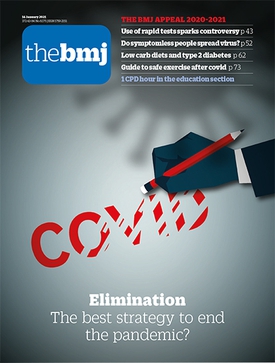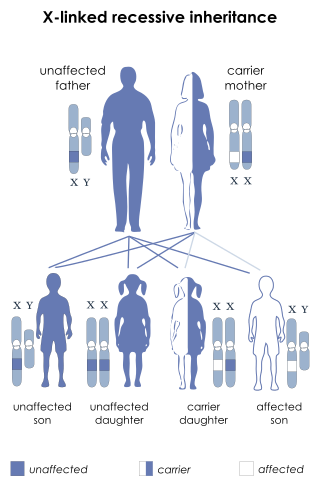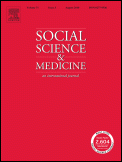
Sjögren syndrome or Sjögren's syndrome is a long-term autoimmune disease that affects the body's moisture-producing glands, and often seriously affects other organ systems, such as the lungs, kidneys, and nervous system.

In immunology, autoimmunity is the system of immune responses of an organism against its own healthy cells, tissues and other normal body constituents. Any disease resulting from this type of immune response is termed an "autoimmune disease". Prominent examples include celiac disease, post-infectious IBS, diabetes mellitus type 1, Henoch–Schönlein purpura (HSP) sarcoidosis, systemic lupus erythematosus (SLE), Sjögren syndrome, eosinophilic granulomatosis with polyangiitis, Hashimoto's thyroiditis, Graves' disease, idiopathic thrombocytopenic purpura, Addison's disease, rheumatoid arthritis (RA), ankylosing spondylitis, polymyositis (PM), dermatomyositis (DM), and multiple sclerosis (MS). Autoimmune diseases are very often treated with steroids.

Glycoproteins are proteins which contain oligosaccharide chains covalently attached to amino acid side-chains. The carbohydrate is attached to the protein in a cotranslational or posttranslational modification. This process is known as glycosylation. Secreted extracellular proteins are often glycosylated.

The BMJ is a weekly peer-reviewed medical trade journal, published by the trade union the British Medical Association (BMA). The BMJ has editorial freedom from the BMA. It is one of the world's oldest general medical journals. Originally called the British Medical Journal, the title was officially shortened to BMJ in 1988, and then changed to The BMJ in 2014. The journal is published by BMJ Publishing Group Ltd, a subsidiary of the British Medical Association (BMA). The editor-in-chief of The BMJ is Kamran Abbasi, who was appointed in January 2022.

Autoimmune polyendocrine syndromes (APSs), also called polyglandular autoimmune syndromes (PGASs) or polyendocrine autoimmune syndromes (PASs), are a heterogeneous group of rare diseases characterized by autoimmune activity against more than one endocrine organ, although non-endocrine organs can be affected. There are three types of APS, and there are a number of other diseases which involve endocrine autoimmunity.

Hashimoto's thyroiditis, also known as chronic lymphocytic thyroiditis and Hashimoto's disease, is an autoimmune disease in which the thyroid gland is gradually destroyed. Early on, symptoms may not be noticed. Over time, the thyroid may enlarge, forming a painless goiter. Some people eventually develop hypothyroidism with accompanying weight gain, fatigue, constipation, depression, hair loss, and general pains. After many years the thyroid typically shrinks in size. Potential complications include thyroid lymphoma. Furthermore, because it is common for untreated patients of Hashimoto's to develop hypothyroidism, further complications can include, but are not limited to, high cholesterol, heart disease, heart failure, high blood pressure, myxedema, and potential pregnancy problems.
Rheumatoid factor (RF) is the autoantibody that was first found in rheumatoid arthritis. It is defined as an antibody against the Fc portion of IgG and different RFs can recognize different parts of the IgG-Fc. RF and IgG join to form immune complexes that contribute to the disease process such as chronic inflammation and join destruction at the synovium and cartilage.

Immunodysregulation polyendocrinopathy enteropathy X-linked syndrome is a rare autoimmune disease. It is one of the autoimmune polyendocrine syndromes. Most often, IPEX presents with autoimmune enteropathy, dermatitis (eczema), and autoimmune endocrinopathy, but other presentations exist.

L-(+)-(S)-Canavanine is a non-proteinogenic amino acid found in certain leguminous plants. It is structurally related to the proteinogenic α-amino acid L-arginine, the sole difference being the replacement of a methylene bridge (-CH
2- unit) in arginine with an oxa group (i.e., an oxygen atom) in canavanine. Canavanine is accumulated primarily in the seeds of the organisms which produce it, where it serves both as a highly deleterious defensive compound against herbivores (due to cells mistaking it for arginine) and a vital source of nitrogen for the growing embryo. The related L-canaline is similar to ornithine.

Yehuda Shoenfeld is an Israeli physician and autoimmunity researcher.
Clinical Infectious Diseases is a peer-reviewed medical journal published by Oxford University Press covering research on the pathogenesis, clinical investigation, medical microbiology, diagnosis, immune mechanisms, and treatment of diseases caused by infectious agents. It includes articles on antimicrobial resistance, bioterrorism, emerging infections, food safety, hospital epidemiology, and HIV/AIDS. It also features highly focused brief reports, review articles, editorials, commentaries, and supplements. The journal is published on behalf of the Infectious Diseases Society of America. The editor-in-chief is infectious disease physician Paul Sax.

Social Science & Medicine is a peer-reviewed academic journal covering social science research on health, including anthropology, economics, geography, psychology, social epidemiology, social policy, sociology, medicine and health care practice, policy, and organization. It was established in 1967 and is published by Elsevier.

An autoimmune disease is a condition that results from an anomalous response of the immune system, wherein it mistakenly targets and attacks healthy, functioning parts of the body as if they were foreign organisms. It is estimated that there are more than 80 recognized autoimmune diseases, with recent scientific evidence suggesting the existence of potentially more than 100 distinct conditions. Nearly any body part can be involved.
Sir Marc Feldmann,, is an Australian-educated British immunologist. He is a professor at the University of Oxford and a senior research fellow at Somerville College, Oxford.

Immunopharmacology and Immunotoxicology is a bimonthly peer-reviewed medical journal that covers preclinical and clinical studies on the regulatory effects of various agents on immunocompetent cells, as well as the immunotoxicity exerted by xenobiotics and drugs. Hence, the journal encompasses a broad range of pathologies. It is published by Informa.

Autoimmune polyendocrine syndrome type 1 (APS-1), is a subtype of autoimmune polyendocrine syndrome. It causes the dysfunction of multiple endocrine glands due to autoimmunity. It is a genetic disorder, inherited in autosomal recessive fashion due to a defect in the AIRE gene , which is located on chromosome 21 and normally confers immune tolerance.
Donald W. Mason was a British immunologist and professor of immunology in the MRC Cellular Immunology Unit at the Sir William Dunn School of Pathology at the University of Oxford. Professor Mason is best known for his work on regulatory T cells and their role in preventing autoimmunity. His distinction was recognised by his election in 2017 to honorary life membership of the British Society for Immunology.

Vijendra Kumar Singh is a neuroimmunologist who formerly held a post at Utah State University, prior to which he was a professor at the University of Michigan. While affiliated with both institutions, he conducted some controversial autism-related research focusing on the potential role of immune system disorders in the etiology of autism. For example, he has testified before a US congressional committee that, in his view, "three quarters of autistic children suffer from an autoimmune disease."
Terri H. Finkel is an American pediatric rheumatologist and immunologist who is the Children's Foundation of Memphis Endowed Chair and tenured professor of pediatrics at the University of Tennessee Health Science Center and St. Jude Children's Research Hospital. Previously, she was the pediatrician-in-chief, chair of pediatrics and chief scientific officer at Nemours Children's Hospital. She is known for her research into autoimmunity, AIDS, juvenile rheumatoid arthritis, lupus, and cancer. Her work has been recognized in more than 200 publications, 10 U.S. patents, and 4 licensed technologies. Finkel has been placed in the top one percent of American pediatric rheumatologists by U.S. News & World Report. Her numerous honors include being named among America's Top Doctors by Castle Connolly every year since 2011 and induction into the Colorado Women's Hall of Fame in 1996.
Autoimmunity Reviews is a bimonthly peer-reviewed medical journal publishing review articles pertaining to autoimmunity. It was established in 2002 and is published by Elsevier. The editors-in-chief are Yehuda Shoenfeld and M. Eric Gershwin. According to the Journal Citation Reports, the journal has a 2016 impact factor of 8.961.













